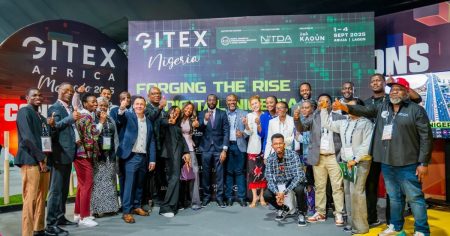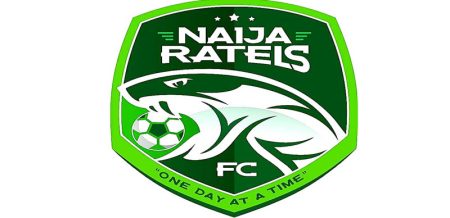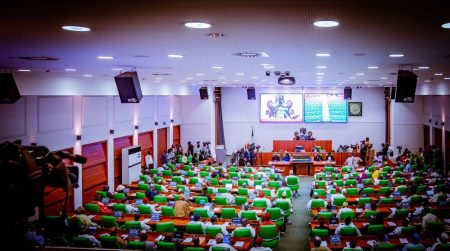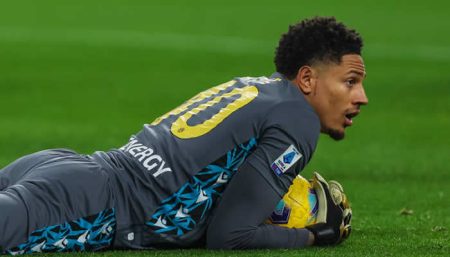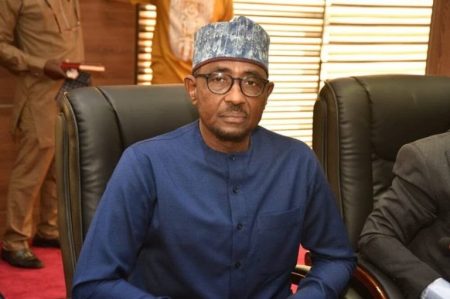Debbie Larry-Izamoje, CEO of Brila Media, marked her presence at the World Football Summit (WFS) in Rabat, a significant event that brought together influential figures in the global football industry. The summit’s theme, “Challenges for Football Clubs: Similarities of European and African Clubs and What They Can Learn from Each Other,” provided a platform for discussing the critical issues facing football clubs across continents. Debbie’s participation was not merely attendance; she played a pivotal role in shaping the conversation, engaging with other prominent figures and offering insightful perspectives on the challenges and opportunities that lie ahead for football, particularly in bridging the gap between African and European clubs. Her contribution underscored her growing influence and leadership within the football community, extending beyond the African continent to the global stage. This participation cemented her position as a key voice in shaping the future of the sport.
The WFS panel, moderated and energized by Debbie, included prominent figures such as Eng. Hersi Said, President of Young Africans SC and Chairman of the African Club Association, representing the African football landscape. The European perspective was provided by Mohammed Hamdi, International Director of Sport at Feyenoord, and José Collado Ripoll, Head of International Sports Projects at Sevilla FC. Adding a crucial legal and governance dimension to the discussion was Sarah Solemale, an internationally recognized lawyer and football governance specialist. This diverse panel, guided by Debbie’s expert moderation, delved into the complexities of football club management, exploring the common ground and unique challenges faced by clubs in Africa and Europe. The discussions aimed to identify areas of mutual learning and potential collaboration, promoting a more integrated and globally connected football ecosystem.
Debbie’s impact at the WFS extended beyond her panel moderation. She was recognized as one of the few Nigerian representatives, alongside Shehu Dikko, Chairman of Nigeria’s National Sports Commission, highlighting her standing within the Nigerian football community and her contribution to the broader African football landscape. Their active participation throughout the summit signified Nigeria’s increasing presence and influence on the global football stage. This recognition further solidified Debbie’s position as a driving force in shaping the future of football, not just within Africa, but also on the international level. Her presence at the summit signifies the growing importance of African voices in global football discourse.
Beyond her engagement on the international stage, Debbie is making a significant contribution to grassroots football development in Nigeria. As the founder of Football for Girls Africa (FGA), she is championing the empowerment of young girls through the sport. FGA goes beyond simply promoting football as a physical activity; it seeks to open doors for girls to explore a diverse range of careers within the sports industry. The program aims to introduce young girls to opportunities in coaching, media, sports law, sports medicine, and entrepreneurship, broadening their horizons and challenging traditional gender roles within the sports world. This initiative underscores Debbie’s commitment to not only advancing the sport but also to using it as a tool for social change and empowerment.
FGA, with the backing of the Nigeria Football Federation and various corporate partners, has ambitious goals. The organization aims to reach 2,500 girls across Nigeria within three years, providing them with the knowledge and resources to pursue their passions within the football ecosystem. This ambitious initiative underscores the potential for football to drive positive social impact and create opportunities for young women in Nigeria. By providing access to training, mentorship, and networking opportunities, FGA is nurturing the next generation of female leaders in sports, contributing to a more inclusive and equitable sporting landscape. The program’s success is not just about increasing female participation in football, but also about empowering girls to pursue their dreams and break down societal barriers.
Debbie Larry-Izamoje’s multifaceted contributions to the football world, from her insightful leadership at Brila Media to her advocacy for inclusivity through FGA and her impactful presence at the WFS, solidify her position as a leading voice in African football. Her work extends beyond the traditional boundaries of sports management, encompassing media innovation, social development, and international collaboration. As the global football landscape continues to evolve, Debbie is not just observing the changes; she is actively shaping the future of the sport, advocating for a more inclusive, diverse, and globally connected football community. Her dedication to empowering young girls through football, combined with her business acumen and her prominent voice on the international stage, establishes her as a true force for change and a key figure in the ongoing development of African football.






